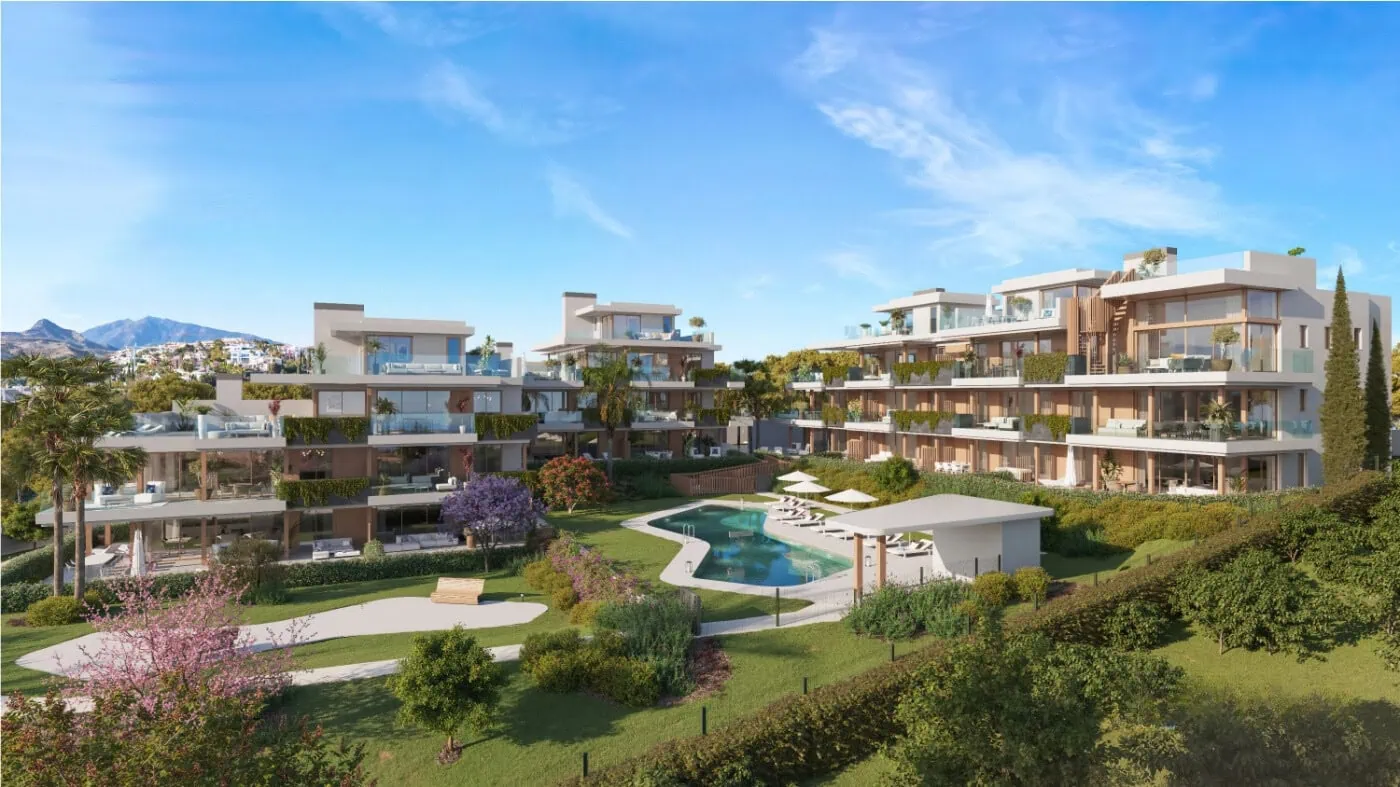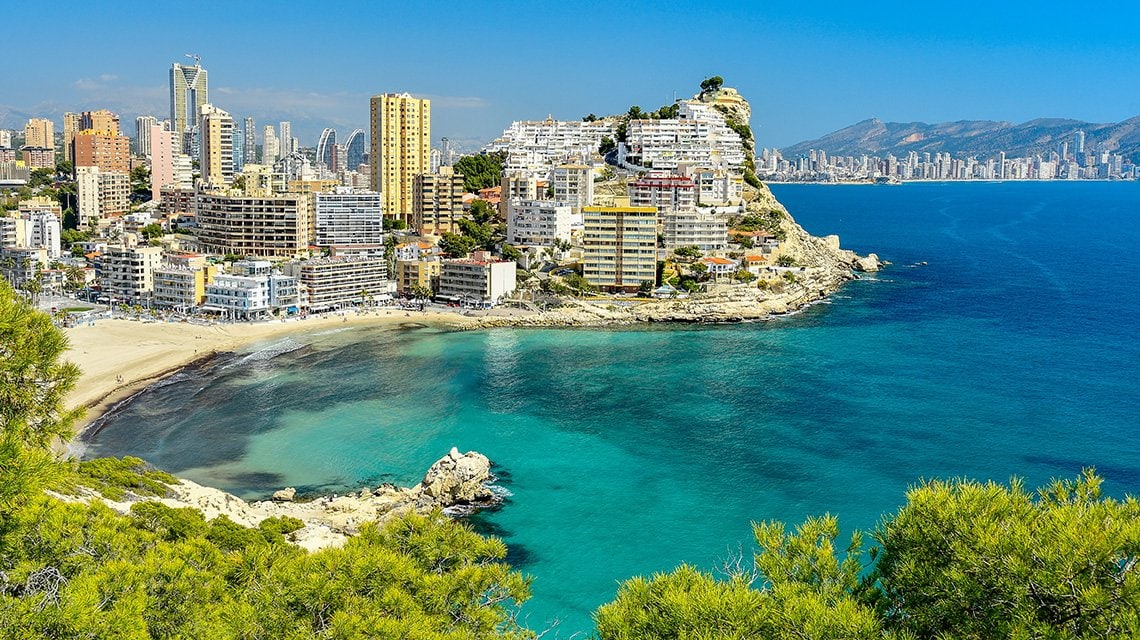Terraces, Pool, and Fitness Center: The Standard of Living in Spain Often Exceeds Domestic Expectations
Interest in residential properties in Spain is growing among Czech buyers. The reasons are clear: stable climate, attractive surroundings, and relatively favourable prices compared to the Czech market. However, many are surprised that the differences between Czech and Spanish housing concepts are not only architectural but go deep into what each country considers a standard.
Equipment Included as Part of the Price, Not for an Extra Charge
While it is common in the Czech Republic for clients to arrange kitchen units, built-in wardrobes, or lighting separately, Spanish projects often offer a much higher level of finish. Kitchens including appliances, central air conditioning, outdoor shading, or fully finished sanitary facilities are usually included in the apartment price. In many cases, buyers can move in without needing further investment.

“Clients are often surprised that the base price includes almost everything needed for immediate living. From their point of view, it’s a pleasant premium, but for the Spanish residential market, this is standard practice, especially in coastal areas,” explains Tereza Budilová, a Spanish market specialist at Home Portal.
A key difference between Czech and Spanish projects is also the size and layout of apartments. The Czech market is characterised by a high proportion of small units — especially in Prague, 1+kk and 2+kk layouts dominate, often without balconies or with very limited outdoor space. In southern Spain, larger layouts are common — from 2+kk upwards — and almost every unit includes a balcony, terrace, or front yard.

At the same time, Spanish developments often offer a higher level of shared amenities — pools, communal gardens, barbecue zones, or fitness centres are standard features of new developments, especially outside city centres. In some locations, 24/7 reception or security is also standard.
The Czech Model Relies on Individualisation
In the Czech Republic, developers more often offer so-called fit-out standard — apartments are sold finished structurally but without final interior fittings. Clients purchase and install these at their own expense and according to their preferences.

“Every client has different preferences. The kitchen is often the most personalised part of the apartment, so it usually doesn’t make sense for Czech developers to build it universally. However, it is common for developers to cooperate with design studios that create kitchens according to the client’s wishes,” explains Jan Vitvera, director of Home Portal.

However, this approach reflects on the overall purchase price, which at first glance may seem more favourable, but after including the costs of additional furnishings, often matches the final budget of a buyer in Spain. A similar difference applies to parking spaces — while in the Czech Republic parking is often sold separately and for an extra fee, in southern Spain it is usually included in the price, and some units even come with two spaces.
Faster Construction and Simpler Purchase
The construction process itself is also different. The Czech market is characterised by long permitting processes and extensive pre-sales. Clients often buy apartments “off-plan” and wait several years for completion. Spanish developments are often completed in shorter times and enter the market at the construction stage, for example, a year before completion. The result is greater certainty of delivery dates and the possibility of early handover.


The purchase process itself is also simplified. While the Czech market relies on notary escrow and direct buyer participation in signing and land registry entries, in Spain the process is often handled by a so-called gestor — an agent who manages all the administrative tasks on behalf of the client. Foreign clients can also obtain mortgages here without difficulties.
“For foreign buyers who want to invest without lengthy involvement in local processes, the Spanish model is advantageous. On the other hand, it is necessary to know local specifics and have a trustworthy local partner,” Budilová concludes.


